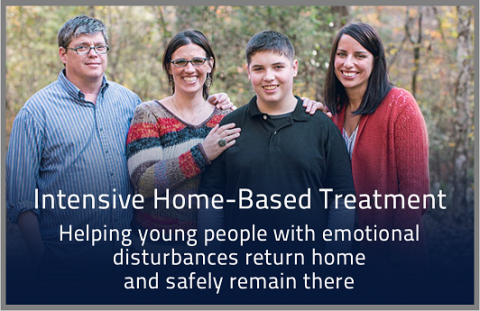Intensive Home-Based Treatment (IHBT) is a mental health treatment option designed to meet the needs of youth with serious emotional disturbances who are at risk of out-of-home placement or who are returning home from placement, such as inpatient hospitalization or residential treatment.
IHBT focuses on the mental health issues that put the youth at risk, while promoting positive development and healthy family functioning with services provided around the clock. The goal of IHBT is to help young people avoid out-of-home placements such as inpatient hospitalization or residential treatment. It is also used to assist with the transition from these types of placements so they can live and function successfully at home, in school, and in the community.
IHBT is designed to provide the necessary mental health services and supports to enable youth to live in their homes in the least restrictive, most normative setting possible. IHBT services focus on the mental health issues that put these youth at risk, while promoting positive development and healthy family functioning.
IHBT integrates core mental health services – community psychiatric supportive treatment, behavioral health counseling and therapy, mental health assessment, and crisis response – into one seamless service. Service is flexibly delivered at a time that is convenient for the entire family and is available around the clock.
IHBT consists of a coordinated and comprehensive package of these mental health services, designed for and provided to families with youth experiencing severe mental health challenges and emotional problems.
IHBT is designed to include the following services:
- Initial and ongoing assessment and safety planning
- Home and community-based individual and family therapy sessions
- Community Psychiatric Supportive Treatment services
- Intensive interventions and case management services for crisis stabilization, service coordination, advocacy and education
- Referral for psychiatric assessment and treatment services
IHBT services are culturally, ethnically, racially, and linguistically appropriate, and respect and build on the strengths of the child and family’s race, culture, and ethnicity.


